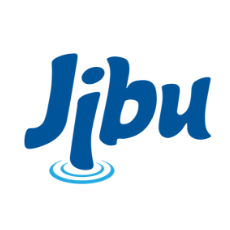Jibu
Jibu
Making clean water more accessible by equipping African entrepreneurs with resources and expertise.
BCTA MEMBERSHIP STATUS
Alumni
SECTOR
Water, Sanitation & Waste Management
HEADQUARTERS
Uganda
REGION OF INITIATIVE
Africa
SDG CONTRIBUTION
RELATED NEWS
Jibu, a business that supports the self-empowerment of low income communities, joined Business Call to Action (BCtA) in August 2018 with a commitment to equip, train and finance 1,000 African entrepreneurs to launch drinking water franchises that will produce two and a half million litres of affordable, safe water every day and serve three million consumers by 2022.
Access to clean water, a basic human right, can be scarce in some African communities, raising the risk of disease and health problems. The cost of commercially sold bottles of water can be prohibitive for poor households. Some households spend hours boiling pots of water, waiting for them to cool before drinking, without necessarily clearing all impurities and toxins.
Compounding this is a lack of access to employment opportunities, particularly for women and youth. For example, in Uganda alone over 400,000 new graduates enter the labor market each year, competing for only 9,000 available jobs. As a result, people living in semi-urban markets with low levels of income in countries such as Kenya, Uganda and Rwanda are negatively affected and priced out of being able to purchase water.
For the private sector, helping low income communities access both employment and clean water presents an attractive business opportunity. Seeing this, Jibu established a franchise business model that improves access to safe drinking water and creates entrepreneurship opportunities, with a focus on women and youth.
Jibu’s inclusive business model requires a pre-qualified franchisee to pay an initial licensing fee, and in return they receive a shop set-up, finance, business skills and water sanitation technology training. Franchisees sell the water in large reusable bottles for approximately US$ 5 cents per litre, which is comparable to the cost of boiling the same amount of water at home, and well below the price of commercially bottled water.



